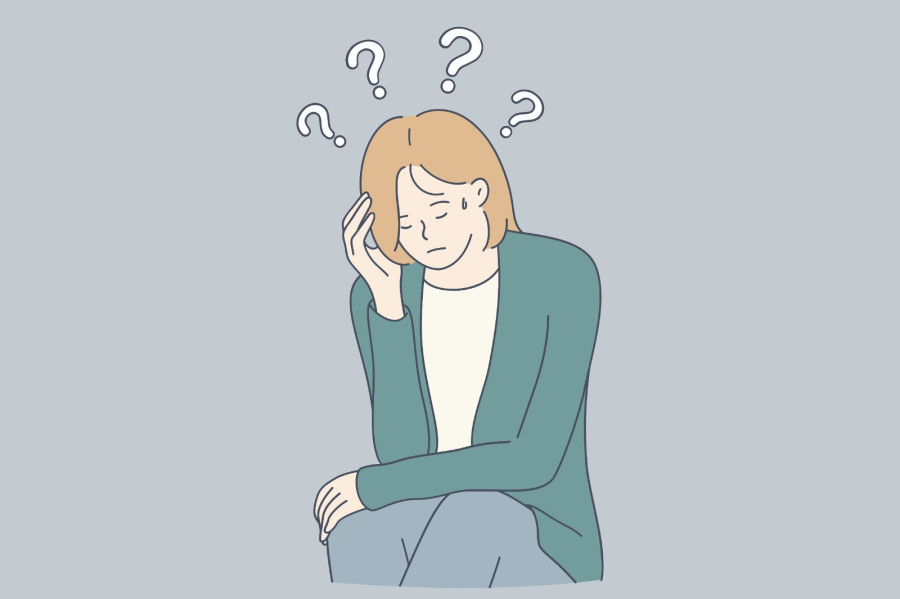Culture & Lifestyle
Dealing with anticipatory anxiety
Worrying about the future becoming a daily battle? Understand the causes and how to manage it.
Rishika Dhakal
Have you ever stressed over future occurrences? Or do you experience overwhelming feelings by imagining worst-case scenarios even before they have a chance to unfold?
Anticipatory anxiety, consumed by a relentless loop of ‘what-ifs’, pulls an individual into a cycle of fear, making them live through possible struggles in their mind long before they occur.
Currently working at the Shankar Dev Campus, psychologist Raju Raut explains anticipatory anxiety. He holds a postgraduate in Counseling Psychology and a Master’s in Psychology.
What is anticipatory anxiety?
Anticipatory anxiety refers to the fear or worry experienced before a potentially stressful event, driven by anticipating a challenging or uncomfortable situation. This anxiety often involves imagining worst-case scenarios, which can heighten stress levels, lead to avoidance behaviours, and trigger physical symptoms like increased heart rate, sweating, or nausea.
It commonly occurs in public speaking, medical procedures, exams, or social events and is often more intense than the event itself due to the mind's tendency to magnify future threats. This anxiety is also linked to conditions like specific phobias or generalised anxiety disorder (GAD).
Can you explain the factors that contribute to this anxiety?
Anticipatory anxiety arises from both physical and mental processes that increase anxiety before a stressful event. Physically, the body's "fight-or-flight" response is triggered by the sympathetic nervous system and the amygdala, releasing stress hormones like adrenaline and cortisol, which cause symptoms like a fast heartbeat and sweating.
Mentally, how we think about the event and focus on adverse outcomes, such as imagining the worst, increases the fear. Past bad experiences and the tendency to avoid stressful situations strengthen this anxiety, creating a cycle where physical reactions and fearful thoughts reinforce each other, making anxiety worse.
What are some common triggers that might lead to anticipatory anxiety?
Anticipatory anxiety can arise in a variety of situations where individuals face uncertainty or potential stress. For instance, public speaking can trigger anxiety due to concerns about judgment or making mistakes. Similarly, the pressure to perform well in exams often leads to pre-test anxiety. Medical procedures may cause anxiety because of the potential for pain or unfavourable news. Social gatherings and meeting new people can be stressful for those with social anxieties. Job interviews also generate anxiety because of the uncertainty surrounding the outcome.
Travel-related anxiety can stem from worries about safety or unfamiliarity with new places. Starting new endeavours, such as new jobs or schools, brings anxiety due to the unknown. Confrontations or difficult discussions can provoke anxiety, as can situations involving specific phobias. Significant life changes, like moving or marriage, can also lead to anxiety because of the adjustments required.
How do we distinguish normal worry from anticipatory anxiety?
Normal worry is generally less intense and more manageable. It focuses on specific concerns proportional to the situation and tends to be short-lived, resolving as the situation unfolds or when steps are taken to address it. Normal worry typically doesn't significantly interfere with daily life and is centred on realistic issues. It usually doesn't lead to physical symptoms or substantial distress.
In contrast, anticipatory anxiety is more intense and often overwhelming, with fears that can feel out of proportion to the actual event. This anxiety usually begins before the anticipated event and may persist or even increase as the event approaches. It can disrupt daily life, leading to avoidance behaviours, physical symptoms like headaches or sleep disturbances, and difficulty concentrating.
Anticipatory anxiety often involves catastrophising or imagining worst-case scenarios that are unlikely to occur, creating excessive and irrational fears.
What can be done to calm this anxiety before an event?
There are several practical ways to ease anticipatory anxiety in the moments before a stressful event. Deep breathing and grounding techniques, such as focusing on your breath or the physical sensations in your body, can help keep you present and reduce physical signs of anxiety.
Visualising a positive outcome and repeating affirmations like "I am ready" can shift your focus from fear to confidence. Progressive muscle relaxation or a few minutes of mindfulness can further calm your body and mind. Preparing by organising your materials or reviewing your plan can also help you feel more in control. Additionally, avoiding stimulants like caffeine, talking to a supportive friend, and doing light physical activity can all help lower anxiety, making it easier to approach the situation with a calm mind.
What are the types of therapy for treating anticipatory anxiety?
Several types of therapy are highly effective in treating anticipatory anxiety. Cognitive-behavioural therapy (CBT) is beneficial, as it teaches individuals to identify and challenge the negative thoughts that fuel their anxiety, helping them develop healthier ways of thinking and coping. Exposure therapy, often part of CBT, involves gradually facing the feared situations in a controlled way, which helps reduce anxiety over time. Mindfulness-based therapies focus on staying present and not getting caught up in worries about the future, making them helpful in breaking the cycle of anticipatory anxiety.
Acceptance and Commitment Therapy (ACT) encourages people to accept their anxious thoughts rather than trying to fight them while focusing on actions that align with their values. Additionally, relaxation techniques like deep breathing and progressive muscle relaxation can help manage the physical symptoms of anxiety, creating a greater sense of calm before stressful events. These therapies can be tailored to individual needs and combined for a well-rounded approach to managing anticipatory anxiety.




 9.83°C Kathmandu
9.83°C Kathmandu

.jpg&w=200&height=120)













